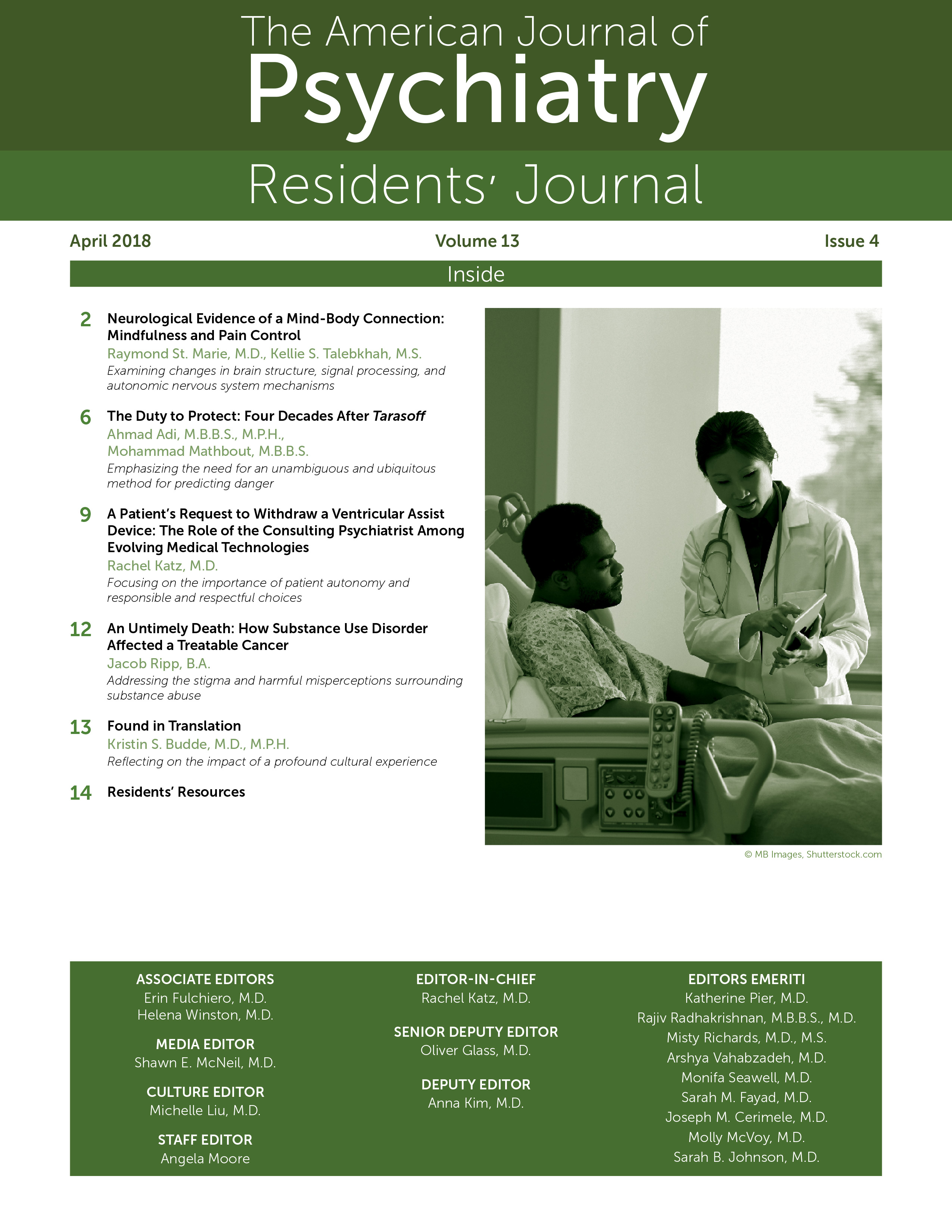Found in Translation
Across from a gorgeous glass-walled hospital stands the red-brick mental health clinic. A guard station fills its entrance, rimmed by a little space to escape the weather.
The guard station is flanked by two doors. Employees swipe their badges and enter through the left side, ignoring the other side, where patients empty their bags and shuffle through a metal detector. The lobby—should one gain entrance—has a few chairs in a rough polygon, a glassed-in-for-safety reception desk, and usually a few people dozing.
One morning I find three women waiting, each wearing a sleek headscarf. I smile and usher them down the hallway into my tiny office. Before I close the door, I look around behind us. I'm not sure why.
When I turn back, I remember that I have three ramshackle chairs. I offer them to the others (the patient, the patient's mother, and their interpreter) and insist that I (the doctor) don't need one. Would it be less awkward to make one of them stand?
Too late. Everyone else is seated now. I try to join them by squatting, but my knees hurt. I take a half-step back and half stand, half lean against my desk, balancing on my right arm, forming a human question mark.
During my calisthenics, the three chat in rapid-fire Arabic, introducing themselves. I'm so busy being awkward and sit-standing that I forget briefly why we're here.
The patient is quiet. Early twenties, with kohl-rimmed dark eyes and a weary gaze. She has posttraumatic stress disorder from a terror-wracked journey across the world. When she arrived to the United States, voices told her to kill herself, and the shouts of her past torturers played in her head.
An overhead banging interrupts us—the clinic endures endless construction. Each time we hear the banging sound, everyone looks warily at the patient, wondering whether the noise will upset her. She's okay today.
We talk about the rest of her family, stuck back home.
I can't react until the interpreter clues me in, so I try to listen without expression. About halfway through, the interpreter stops and smiles. She tells me that the patient and her mother were joking about my makeshift chairs, which lean back too far. The mother sits back and lifts her legs like she's on a ride, laughing.
Toward the end, they ask whether there's a place to worship nearby, so I print out a map and circle the Islamic center. I start to explain how to get there, but I realize that I'm not sure which bus they need.
The interpreter understands everything, even the pauses. She takes the map, notating in neat right-to-left characters.
When she finishes, I realize that I'm kneeling on the floor next to her. A tiny community has sprouted from a windowless office and a few crummy chairs.
While everyone walks out of my office, I give my best impression of how they say shukran (thank you). It's probably so badly pronounced that it comes across as another unintelligible English word.
Or maybe not. The patient gives me a hug. I hug her back. For a moment, we're on the same page.



